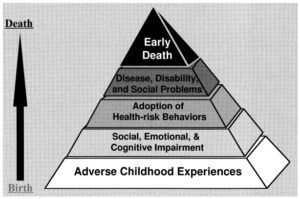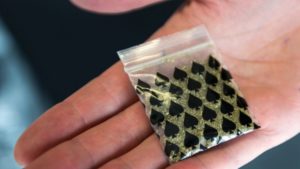
The Greens have taken their sweet time in updating their cannabis policy to something reasonable, and this newspaper has not shied from criticising them for dragging their heels. But today they did update it – and this update has electoral ramifications worth considering.
The updated drug law policy seems to be the responsibility of Julie Anne Genter (whose sponsored FaceBook posts you may have seen recently if you were in enough cannabis-related groups). This is her first major effort since assuming the role of Greens Health Spokesperson from Kevin Hague.
Most encouragingly, in an interview about the new policy Genter made a reference to Canada and the USA, in particular the Western seaboard closest to New Zealand. It’s in Colorado, Washington, Oregon and California that cannabis prohibition was repealed by referendum and in Canada that it is in the process of being repealed by a party that ran explicitly on the issue in a General Election.
She also used a couple of arguments straight out of the Cannabis Activist’s Handbook: that cannabis law reform was a similar sort of deal to gay marriage in that the herd was against until until it had had a few decades to think about it and that legalisation would make it harder – not easier, as it is considered by some – for young people to get hold of it because of the current lack of ID checks on the black market.
The Aotearoa Legalise Cannabis Party has made a point of using the example of Colorado to suggest what a sane cannabis policy ought to look like. So if the Greens are signalling that this is also their long-term vision, then they ought to count on collecting votes from people who think along similar lines.
The ALCP scored 0.46% of the vote in the 2014 General Election. This isn’t much but it’s a lower limit on what the Greens might expect to gain from this policy.
All of these people were willing to drag themselves to the polls to vote for a party who had no realistic chance of making a difference but who did intend to make noise about the cannabis law, so it’s likely that the vast majority of people willing to vote for the non-Parliamentary ALCP would be willing to vote Green now that the Greens have a similar cannabis policy.
This newspaper estimated last year that the true amount of support for the ALCP was probably closer to 1%, based on the increase in support for reform to New Zealand’s drug laws since 2014 (change has been very rapid on this front). The Greens can count on most of those.
On top of that, one has to factor in all the people who would have voted for such a policy in 2014 had a major party supported it, as one now does.
These people are probably as least three times as numerous as those who voted ALCP in 2014 or were intending to do in 2017.
It’s interesting to note that voting Green in 2014 and voting ALCP in 2014 has a correlation of only 0.02. This is because Green voters tend to be white and wealthy whereas ALCP voters tend to be poor and Maori.
Voting ALCP in 2014 had a correlation of -0.40 with Net Personal Income, which suggests that cannabis voters are poorer than all but Labour, Maori Party and New Zealand First voters. Voting Green in 2014 had a correlation of 0.31 with Net Personal Income, which means Green voters are almost wealthier than average by as much as the average cannabis voter is poorer than average.
Implicit in these statistics is the potential for the Greens to attract a large number of new voters, especially those who didn’t vote in 2014, as the anti-cannabis brainwashing has been least effective on those who are already disenfranchised, such as Maori, young people and the mentally ill, and these traditionally low-voting groups now have a reason to reconsider.
These statistics suggest that there are many New Zealanders who have only just now started to hear the Green Party tune as the party seeks to expand outside of their traditional wealthy, white urban strongholds.
It’s easily possible that this new policy will result in 2% extra votes for the Greens on Election night 2017, because of the immense degree of disenfranchisement suffered by cannabis users before today. This alone would result in two extra seats once they were all dealt out.
After all, there are 400,000 cannabis users in New Zealand and our options, until today, were terrible.



